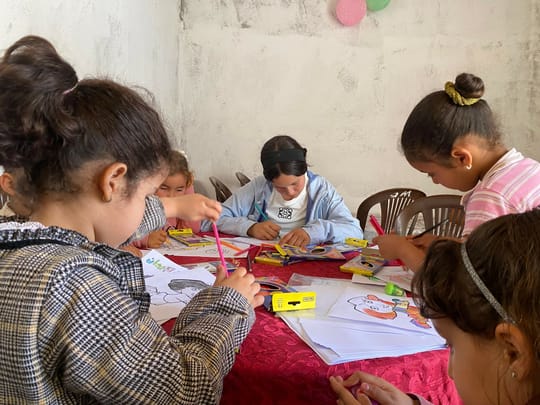Exploring Personality Development in Childhood

I spent four days in a village that I will call “Bright Hope,” where I was part of the psychological support team tasked with helping children overcome the difficulties caused by the Al Haouz earthquake. My mission was to provide psychological and social support to these children, with the aim of helping them adapt to the consequences of this natural disaster.
During this period, I found myself faced with an interesting challenge. There are twin girls in the village who look similar but are completely different in personality and behaviors. This marked difference between the twins sparked my curiosity and pushed me to understand more about how different factors influence personality development in childhood.
The first girl – let's call her Sarah – is very active and always on the move. She can only be described as an energy storm. Sarah was moving around the village quickly, playing with all the children, making everything around her lively and alive. She prefers active games such as cycling and playing soccer, loves challenging other children to sporting activities, and is always the first to join in any activity.
The second girl – let’s call her Lena – is remarkably calm. Lena represents calm and serenity. She prefers to stay in one place for long periods and likes to listen and observe rather than actively participate in games. She loves quiet activities such as reading books and drawing pictures and shows a special interest in artistic matters. She spends long hours drawing pictures and creating various artworks.
In addition to their personalities and behaviors, the two girls have clear differences in their thinking patterns and preferences. For example, while Sarah enjoys constant movement and loves interacting with others, Lena prefers to stand to the side and observe things closely. She can concentrate and think deeply and enjoys activities that require creative thinking, such as solving puzzles and assembling smart toys.
These personality differences between the twins raised many questions for me and led me to be interested in understanding the factors that affect personality formation in childhood. Is the difference in personalities caused by genetics? Or are the environment and experiences the main factors in shaping personality? Could the difference in personalities result from how parents deal with each child? These questions during this special time pushed me to delve deeper into the world of child psychology.
My work with Sarah and Lina helped me understand the extent of individual differences in personalities, even in childhood, and my experience with them taught me how to deal with children individually and provide support and assistance according to their needs. I am always looking for new ways to motivate each child, support them in developing their abilities, and provide them with the tools to help them grow and develop in a healthy and balanced way.
My understanding of these two contradictory personalities led me to think more deeply about the concept of the influence of environment and genetics on personality development in childhood. This experience motivated me to further explore the concept of “personality influencing factors.” Of course, factors that may influence personality in childhood formation are upbringing, education, social relationships, and personal experiences.
My experience with Sarah and Lena was not limited to providing them with psychological and social support but was also an opportunity for me to explore many scientific and psychological concepts related to personality development in childhood. My work with them has helped me understand how different factors can influence children's development and shape their personalities.
Through my experience with Sarah and Lina, I have become more convinced that personality is not fixed but is greatly influenced by the environment and experiences. My experience with Sarah and Lena was a fun and interesting educational journey into the world of personality and its development. I am grateful for the opportunity to work with them, learn from their experiences and discover many new aspects in the world of child psychology.